“NO BLESSING FOR HOMOSEXUAL COUPLES IN ALL CHURCHES IN AFRICA”
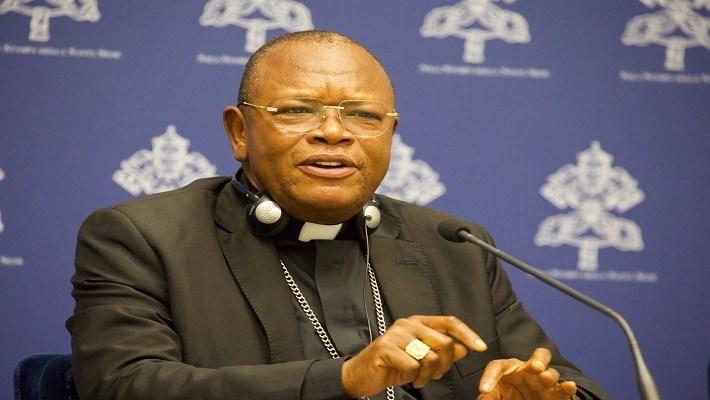
SYNODALITY
Bishops of Africa and Europe
Committed to walk together

APPOINTMENTS
For Church in Africa :
- Three Apostolic Nuncios
- Eleven new Bishops


Bishops of Africa and Europe
Committed to walk together

For Church in Africa :
- Three Apostolic Nuncios
- Eleven new Bishops


The bishops from the Symposium of Episcopal Conferences of Africa and Madagascar (SECAM) and the Council of European Catholic Bishops’ Conferences (CCEE) have pledged their dedication to journey together as sister churches acrosstwocontinents.
Twenty bishops, with ten representing each side, convened for a two-day seminar at the Mariapolis Retreat Centre inNairobi, Kenya, on the 24thand 25thof January 2024. This seventh CCEESECAM seminar holds significant importance in the historical context of these two continents. In Africa, numerous local churches are celebrating their rich history of evangelization, spanning from 120 to over 500 years, a testament to the dedicated work of the European Church. Conversely, Europe is currently facing challenges, including a decline in the number of practicing Christians and a noticeable rise in secularism. Africa, on the other hand, is witnessing a remarkable growth in its Christian population, with millions of new converts, including a staggering 8 million in 2023 alone. The African Church is emerging as a mature and forward-looking institution, while Europe is positioning itself as a mission field, embracing new evangelization efforts and welcoming missionaries from Africa.
In this context, and as we celebrate the 20th anniversary of collaboration and solidarity between Africa and Europe, which commenced in 2004, the concept of "walking together" in the spirit of synodality signifies that the bishops of these two continents are dedicated to:
• listen to each other with attention and respect, as two sister churches, and draw inspiration from the sharing and discussions for a renewed apostolate in view of a profound evangelization and re-evangelization of the two continents.
• foster a sense of communion among themselves, grounded in their sacramental brotherhood and to focus on engaging in discussions about shared responsibilities pastoral care, particularly in the context of a globalized world and the emerging challenges posedby secularization.
• embrace the spirit of fraternity and to create a more harmonious and prosperous future for the diverse communities on the continents.
• allow that the European experience, enriched by its diverse ecclesial identity, and the African perspective, with its emphasis on communal values and practices, both contribute significantly to the global Church’s journey towards a more synodal structure.
• preserve the faith and culture of diverse peoples and thus, mitigate the risks of uniformity and centralism, as highlighted in Chapter 19, section (d) of the Synthesis of the First Session of theSynodonSynodality.
At this crucial time of our world, the bishops of Africa and Europe unite in the call to cultivate a culture of fraternity and strive to create a more harmonious and prosperous future, building bridges that not only connect the two continents, but also nurture the growth and flourishing of diversecommunitiesinfaithandlove.
May God bless their joint efforts as they journey together in synodality, united, Africa and Europe, in faith, hope and love.
Fr Rafael Simbine Junior
Msgr. Luís Miguel Muñoz Cárdaba
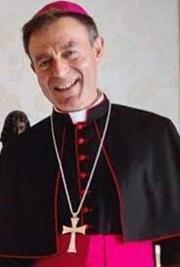
The Holy Father has transferred Nuncio Archbishop Luís Miguel Muñoz Cárdaba from Sudan and Eritrea to Mozambique. The news was made public on Tuesday, January 23, 2024. Archbishop Cárdaba was born in Toledo, Spain, in1965.
Urbańczyk, a native of Poland, as the new Apostolic Nuncio to Zimbabwe, and assigned him the Titular See of Voli in Tunisia with the dignity of Archbishop. Born in Poland’s CatholicDioceseof Warszawa-Praga inMay1967.
Msgr. Janusz Urbańczyk

On January 25, 2024, Pope Francis has appointed Mons. Janusz
Msgr. Alfred Xuereb

On December 8, 2023, the Pope appointed Mgr. Alfred Xuereb, titular of Amantea, until now apostolic nuncio to Korea and Mongolia, as apostolic nuncio to Morocco. Archbishop Xuereb was born in Gozo (Malta) in 1958.
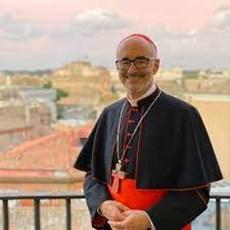
The Prefect of the Dicastery for Promoting Integral Human Development (DPIHD) has advocated for a Church-State “synergy” in the realiza-
tion of the “Green Church Program”, an initiative of Benin’s Cotonou Archdiocese that “aims to bring about an ecological conversion among the faithful of the Catholic Church.” Speaking at a Round Table in Cotonou on Saturday, January 20 as part of the Green Church Program, Michael Cardinal Czerny said, “It would be difficult for the Church, even with the support of financial partners and the contribution of the faithful, to provide resources that fall within the sovereign domainoftheState”.

On December 5, 2023, the Holy Father has appointed the Reverend Luc Olivier Razafitsimialona, of the clergy of the diocese of Ihosy, until now bursar and professor in the Saint Jean Baptiste Seminary of Vohitsoa, as bishop of Tôlagnaro, Madagascar. The Rev. Luc Olivier Razafitsimialona was born on 10October1969inAmbositra.

On December 8, 2023, the Holy Father appointed Rev. Anselm Pendo Lawani, until now diocesan administrator of Ilorin, Nigeria, as bishop of the same ecclesiastical circumscription. Msgr. Anselm Pendo Lawani was born on 12 September 1970 in Igarra, in Edo State, Nigeria.
Msgr. Teshome Fikre Woldetensae

The Holy Father appointed on December 16, 2023 Rev. Teshome Fikre Woldetensae, until now protosyncello of the Eparchy of Emdeber, Ethiopia and Secretary General of the Interritual Episcopal Conference of Ethiopia, as coadjutor bishop of the same circumscription.
Msgr. Teshome Fikre Woldetensae wasbornon6June1972inGuraghe.
Msgr. Michel Moura

The Holy Father has appointed December 20, 2023 the Reverend Michel Moura, of the clergy of the diocese of PortLouis, until now director of the Pontifical Mission Societies for the territories of the Episcopal Conference of the Indian Ocean and episcopal vicar of the diocese of Port-Louis, as vicar apostolic of Rodrigues, Mauritius. Msgr. Michel Moura was born on 28 September 1963 inVacoas-Phoenix inMauritius.
Msgr. Vincent Cosmas Mwagala
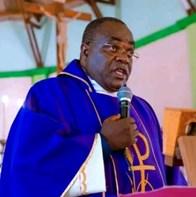
TheHolyFathererected the new diocese of Mafinga, Tanzania, on December 22, 2023 through the dismemberment of the diocese of Iringa, making it suffragan of the metropolitan see of Mbeya and he has appointed the Reverend Vincent Cosmas Mwagala, of the clergy of the diocese of Iringa, vicar general and parish priest of Ifunda, as the first bishop of the newly-erected diocese of Mafinga, Tanzania. Msgr. Vincent Cosmas Mwagala was born on 11 December 1973 in Makungu, in the Iringaregion.
Msgr. Thomas Obiatuegwu

The Holy Father on January 5, 2024 appointed Reverend Thomas Ifeanyichukwu Obiatuegwu, of the clergy of Orlu, Nigeria, hitherto pastor of Saint Thomas of Umuna, as auxiliary bishop of the same diocese of Orlu, assigning him the titular see by Horrea Cœlia. Msgr. Thomas Ifeanyichukwu Obiatuegwu was born on1January1966in Uli,in theState ofAnambra.
Msgr. Abel Liluala

The Holy Father has appointed the Reverend Abel Liluala, until now parish priest of the Cathedral and judicial vicar of the archdiocese of Pointe-Noire, as metropolitan archbishop of Pointe-Noire, Democratic RepublicoftheCongo.
Msgr. Abel Lilualawasbornon23 April 1964 in Cabinda, Angola, near PointeNoire.
Msgr. Gélase Armel Kema
Msgr. Jamal Boulos Sleiman Daibes

On January 13, 2024, the Holy Father appointed Mgr Jamal Boulos Sleiman Daibes, until now titular of Patara and auxiliary of the Patriarchal Diocese of Jerusalem of the Latins, as Bishop of Djibouti, Republic of Djibouti. Bishop Jamal Boulos Sleiman Daibes was born on3July1964in Zababdeh,Palestine.
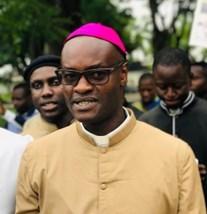
On January 6, 2024, the Holy Father appointed Mgr Gélase Armel Kema, until now bishop of the diocese of Ouesso as bishop of the diocese of Owando. Mgr Gélase Armel Kema was born on October26,1972inOuesso.
Msgr. João de Ceita Nazaré

The Holy Father appointed on January 9, 2024 Reverend João de Ceita Nazaré, of the clergy of São Tomé and Principe, until now delegate of the apostolic administrator and parish priest of the Cathedral of Our Lady of Graces of São Tomé, as bishop of the same diocese of São Tomé and Principe. Msgr. João de Ceita Nazaré was born on 22 August 1973 in Trindade,SãoTomé.

The Holy Father has appointed on January 17, 2024 the Reverend Fr. Emmanuel Ngona Ngotsi, M.Afr., until now provincial superior of the Missionaries of Africa – Province of Central Africa, as bishop of the diocese of Wamba, Democratic Republic of the Congo. Msgr. Emmanuel Ngona Ngotsi, M.Afr., was born on 1 January 1960 in BambuMines, in the diocese of Bunia, DemocraticRepublicoftheCongo.
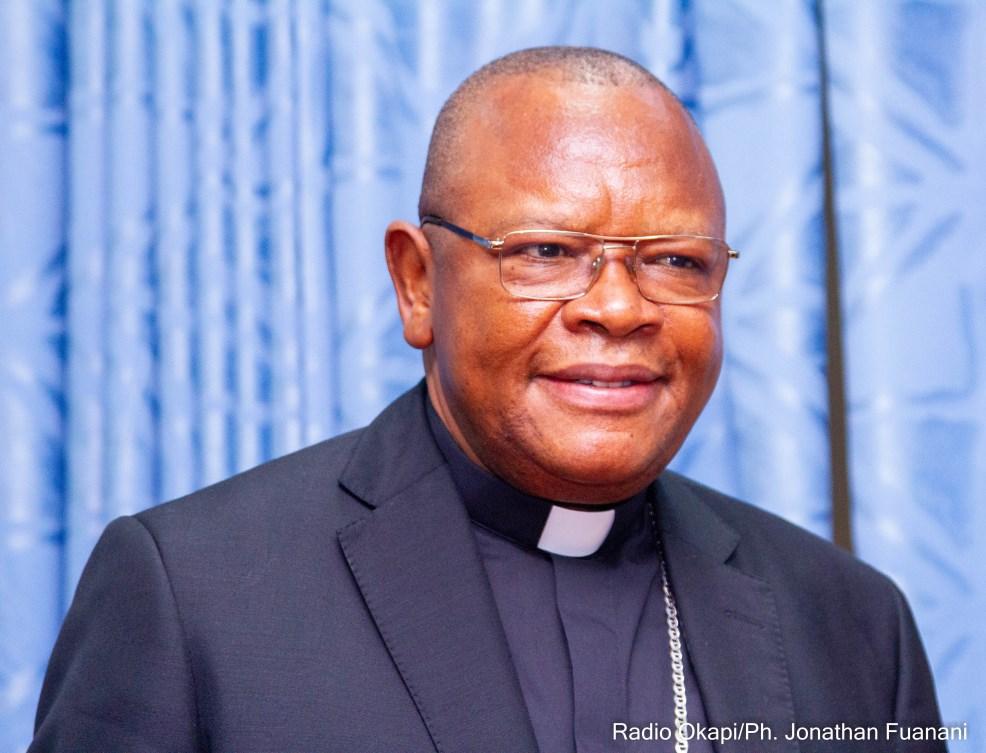
Dear brothers and sisters in the Lord, Grace and peace!
The message that Itransmit to you today has received the agreement of His Holiness Pope Francis and His Eminence Cardinal Victor Manuel Fernández, prefect of the Dicastery for theDoctrineoftheFaith.
It presents a consolidated summary of thepositionsadoptedbyvariousnational and inter-territorial Episcopal Conferences across the African continent, in response to the publication of the Declaration of the Dicastery for the Doctrine of the Faith Fiducia supplicans of December 18, 2023. Within the Church Family of God in Africa, this Declaration has caused a shockwave, it has sown misconceptions and unrest in the minds ofmanylay faithful, consecrated persons and even pastors and aroused strongreactions.
The synthesis of responses of the African Episcopal Conferences highlights a common understanding and approach on their part. It encompasses their views on the unchanged doctrine of marriage within the Church, the pastoral care extended to all members of the Church and their unified position on same-sex unions.
In their various messages, the Episcopal Conferences of the Church Family of God in Africa begin by reaffirming their unwavering attachment to the Successor of Peter, their communion with him and their fidelity to the Gospel. They recognize collectively that the Church's doctrine on marriage and the family remains unchanged. They all noted the passages where Fiducia supplicans reaffirmed this traditional position of the Church and explicitly excluded the recognition of homosexual marriage. This position, rooted in the Holy Scriptures, has been taught without interruption by the universal Magisterium of the Church. Therefore, rites and prayers that could blur the definition of marriage – as an exclusive, stable and indissoluble union between a man and a woman, open to procreation –are considered as unacceptable. The distinction made by Fiducia supplicans between liturgical blessings or formal ritual blessings and spontaneous blessings is not intended to impose blessings for irregular couples and same-sex couples (cf. 31) even if the document says that they “should be carried out outside liturgical frameworks” (cf.31 &38).
Through the declarations of the Episcopal Conferences, the Church in Africa, as the Family of God, reaffirms its commitment to continuing pastoral assistance to all its members. Clergy are encouraged to provide welcoming and supportive pastoral care, particularly to couples in irregular situations. The African bishops' Conferences emphasize that people with homosexual tendency must be treated with respect and dignity, while reminding them that same-sex unions are contrary to the will of God and therefore cannot receive the blessing of
3. Position on homosexual unions and same-sex couples
The Episcopal Conferences generally prefer – each bishop remaining free in his diocese – not to offer blessings to same-sex couples. This decision stems from concern about potential confusion and scandal within the Church community. The constant teaching of the Church describes homosexual acts as “intrinsically disordered” (Congregation fortheDoctrineoftheFaith,Declaration Persona Humana, n. 8) and contrary to natural law. These acts, considered to exclude the gift of life and lacking true emotional and sexual complementarity, must not be approved under any circumstances (Catechism of the Catholic Church,n.2357).
To support this position,a large majority of interventions by African bishops rely above all on the Word of God. They cite passages which condemn homosexuality, notably Lv 18:22-23 where homosexuality is explicitly prohibited and considered an abomination. This legislative text testifies to these practices in the environment of Israel, as well as other practices that God prohibits, such as infanticide (cf. Thesacrificeof Isaac). An episcopal conference added the scandal of the homosexuals of Sodom (cf. Gen 19:4-11). In the text's narration, homosexuality is so abominable that it will lead to the destruction of the city. In the New Testament, Saint Paul, in the Epistle to the Romans, also condemns what he calls unnatural relationships (cf. Rom 1:26-33) or infamous morals (cf. 1Co 6:9-10). In addition to these biblical reasons, the cultural context in Africa, deeply rooted in natural law values regarding marriage and family, further complicates the acceptance of same-sex unions, as they are seen as contradictory tonormsculturalandintrinsicallybad.
In summary, the episcopal conferences
across Africa, which have strongly reaffirmed their communion with Pope Francis, believe that the extra-liturgical blessings proposed in the Fiducia supplicans Declaration cannot be carried out in Africa without exposing themselves to scandals. They remind, as Fiducia supplicans clearly does, to the clergy, religious communities, all believers and people of good will, that the doctrine of the Church on Christian marriage and sexuality remains unchanged. For this reason, we, African bishops, do not consider it appropriate forAfrica to bless homosexual unions or same-sex couples because, in our context, this would cause confusion and be in direct contradiction to the cultural ethos African communities. The language of Fiducia supplicans remains too subtle for simple people to understand. Furthermore, it remains very difficult to convince that people of the same sex who live in a stable union do not claim the legitimacy of their own status.
We, African bishops, insist on the call to the conversion of all. Like Hosea, Jesus comes to bear witness to the tenderness of God: “He did not come to call the righteous, but sinners” (Mt 9:3). there is no doubt. But Jesus also extends his hand to the sinner so that he mayrise, so that he may convert (cf. Mk 1:5). After having shown such tenderness for the adulterous woman, he said to her: “go now, sin no more” (Jn 8:11). As salt of the earth and light of the world (cf. Mt 5:13-14), the merciful mission of the Church is to go against the tide of the spirit of the world (cf. Rom 12:2) and to offer him the best, even if he is demanding.
Some countries prefer to have more time for the deepening of the Declaration which, in fact, offers the possibility of these blessings but does not impose them. In anycase, we will still reflect on the value of the general theme of this document, beyond just blessings for couples in an irregular situation, that is to say on the richness of spontaneous
blessingsinpopularpastoralcare.
5. Grace and peace
“Grace and peace”: it is with these words taken from Saint Paul that in communion with His Holiness Pope Francis and all African bishops, as president of the Symposium of Episcopal Conferences of Africa and Madagascar (SECAM), I end this message thus calling on Christian communities not to let themselves be
shaken. His Holiness Pope Francis, fiercely opposed to any form of cultural colonization in Africa, wholeheartedly blesses the African people and encourages them to remain faithful, as always, to the defense of Christian values.
Cardinal Fridolin Ambongo Besungu, President of SECAMYour Eminence
Your Excellences
Rev. Fathers
Men and Women Religions
Distinguished, Ladies and Gentlemen, I would like to take this opportunity, on behalf of the members of the Symposium of the Episcopal Conference of Africa and Madagascar (SECAM) and on my own behalf, to warmly welcome you to Africa and to this seventh seminar of the bishops ofAfricaandEurope.
The deep relationship between the CCEE (Council of European Episcopal Conferences) and SECAM (Symposium of Episcopal Conferences of Africa and Madagascar) started in 2004, when a symposium of African and European Bishops held in Rome, championed by some African Bishops, the Congregation for the Evangelization of Peoples, the Synod of Bishops, the Pontifical Council, Cor Unum and some partner agencies like MISSIO (Aachen and Munich), MISEREOR, ChurchinNeed,CAFOD,etc.
That Rome meeting, on the theme of “Communion and Solidarity between Africa and Europe”, defined the objectives of these seminars: 1) to live an experience of communion among African and European Bishops, on the basis of
sacramental fraternity; and 2) to discuss common responsibility for evangelization, mission and pastoral care in the new situation of a globalized world and the challengesofsecularization.
Since the programming meeting in 2004, this is the seventh seminar and the fourth to be held in Africa. In fact, after that Rome meeting, the first was in CAPE COAST/Ghana (2007) on the theme of New Forms of Slavery; the second was in LIVERPOOL/England (2008) on the theme of Migration; the third was in ABIDJAN/Ivory Coast (2010) on the theme of African Pastoral Agents in Europe; the fourth was in ROME/Italy (2012) on the theme of Evangelization; the fifth was in MAPUTO/Mozambique (2015) on the theme of the Family; the sixth was in FATIMA/Portugal (2018) on thethemeofGlobalization.
This seventh seminar, which brings us together here in Nairobi, is taking place at a very particular moment in the history of the Church. On the one hand, we have the Apostolic Constitution "Praedicate Evangelium", which summarizes the path of reform that has lasted almost a decade, accompanying the pontificate of Pope Francis. On the other hand, synodality, which insists on the Church as a mystery
ofcommunion.Tworealitiesthatinvitethe Church to go back and rediscover the richness of the Second Vatican Council. In fact, the indication of evangelization and the role of the laity as priorities links the Apostolic Constitution Praedicate Evangelium to the Second Vatican Council. The same can be said of synodality, whichshows thatintheChurch mission and communion are so closely united that we can say that the aim of mission is precisely to "make everyone know and live the 'new' communion that the Son of God made man has introduced into the history of the world. This life of communion makes the Church synodal; a Church marked by mutual listening, "where everyone has something to learn. All listening to each other and all listening totheHolySpirit(PE,4).
Itwasinthiscontextthatthethemeforthis seventh seminar was deemed appropriate:
“
SYNODALITY: AFRICA AND EUROPE WALKING TOGETHER”. As bishops of these two continents, we want to reflect on how we can truly walk together in communion, collaboration and mutual respect. This theme and this desire to walk together are not new, but they are reinforcedandrenewedbythedynamics of synodality that the Church is living today. In fact, exactly 20 years ago (2004-2024), the first theme of the reflection invited us to walk together as bishops of Africa and Europe: “Communion and Solidarity betweenAfricaandEurope”.
This seminar, celebrating 20 years of this fraternal relationship, will also serve as a review, so that we can courageously abandoneverythingthatdoesnotmakethis journey together grow and embrace what makes us strong in collaboration and communioninthemissionofspreadingthe Gospel of salvation and the growth of Christ'sChurchinourcontinents.
In this journey together, the synodal process encourages us, as Continental Organizations, in safeguarding the faith andcultureofthepeoples,toavoidtherisk of uniformity and centralism (Chapter 19,d
of the Synthesis of the First Session of the Synod on Synodality). In this context, in my message to all the people of God in Africa, summarizing the reactions of the Episcopal Conferences of Africa and Madagascar to the Declaration Fiducia Supplicans of 18 December 2023 published by the Dicastery for Doctrine andFaith,Isaid:
“In summary, the Episcopal Conferences across Africa, which have strongly reaffirmed their communion with Pope Francis, believe that the extra-liturgical blessings proposed in the Declaration Fiducia supplicans cannot be carried out in Africa without exposing themselves to scandals. They remind, as Fiducia Supplicans clearly does, the clergy, religious communities, all believers and people of good will, that the Church’s doctrine on Christian marriage and sexuality remains unchanged. For this reason, we, the African Bishops, do not consider it appropriate for Africa to bless homosexual unions or same-sex couples because, in our context, this would cause confusion and would be in direct contradiction to the cultural ethos of African communities. The language of Fiducia supplicans remains too subtle for simplepeopletounderstand”.
In the school of synodality, we want to express our desire to be guided by the Spirit of Jesus, listening to each other with attention and respect, and drawing inspiration from our sharing and discussions for a renewed apostolate in view of a profound evangelization and re-evangelizationofourcontinents.
Onceagain,welcometoyouall.
Iwishyouaverygoodmeeting.
Thankyouforyourattention.

Twenty African and European Catholic bishops participated in an international seminar in Nairobi, Kenya, from January 23 to 26, on the theme “Synodality: Africa and Europe walking together”. At the end of this meeting a joint declaration was published to mark their continued commitment to promoting communion and solidarity between the Churches of Africa andEurope.
As the world faces unprecedented changes and challenges, the role of the Church in promoting justice, peace and solidarity becomes even more crucial. It is in this context that the Symposium of Episcopal Conferences of Africa and Madagascar (SECAM) and the Council of Episcopal Conferences of Europe (CCEE) met for their seventh joint seminar at the MariapolisRetreatCenter,Nairobi,Kenya.
This seminar is part of a series initiated from 2004 and represents a vital platform for dialogue and mutual understanding between the two entities. Previously scheduled to be held in 2021, it was postponed due to the Covid-19 pandemic. According to the Secretary General of SECAM, Rev. Rafael Simbine Junior, this
meeting aims to “build on the rich discussionsofthepastwhileturningtonew horizons in the mission of the Church in an increasingly globalized context". “This event,” he said, “also represents a continued commitment to the spirit of synodality and mutual enrichment between theChurchesofAfricaandEurope.”
Twenty (20) bishops, including 10 from each continent, as well as 8 facilitators and assistants, are taking part in the work officially opened on Tuesday, January 23. Various thematic communications were presented, followed by exchanges and impressions from both parties on the first session of the Synod on synodality held in RomeinOctober2023.
Particular emphasis was placed on listening to the voices of young people from both continents, recognizing their crucial role in shaping the future of the Church. The seminar concluded with the release of a final declaration on January 25, followed by a closing Mass and dinner at Christ the KingParish.
To you, the dear people of God in Africa and Europe, grace and peace, from us, the Bishops of the SECAM and CCEE delegations, gathered in Nairobi, Kenya, for our Seminar entitled "Synodality: Africa and Europe WalkingTogether".
We acknowledge the profound changes and escalating instability in our world, including conflicts in Africa, Europe and
the Middle East. Throughout these regions we also witness increasing violence against Christians and misery caused by global injustice and bad governance. In the midst of these alarming challenges, our faith in the resurrected Lord remains unshaken. Christ is the one who brings us peace and hope, providing a beacon of light and certainty amidst the turmoil and uncertaintythat characterize our times.
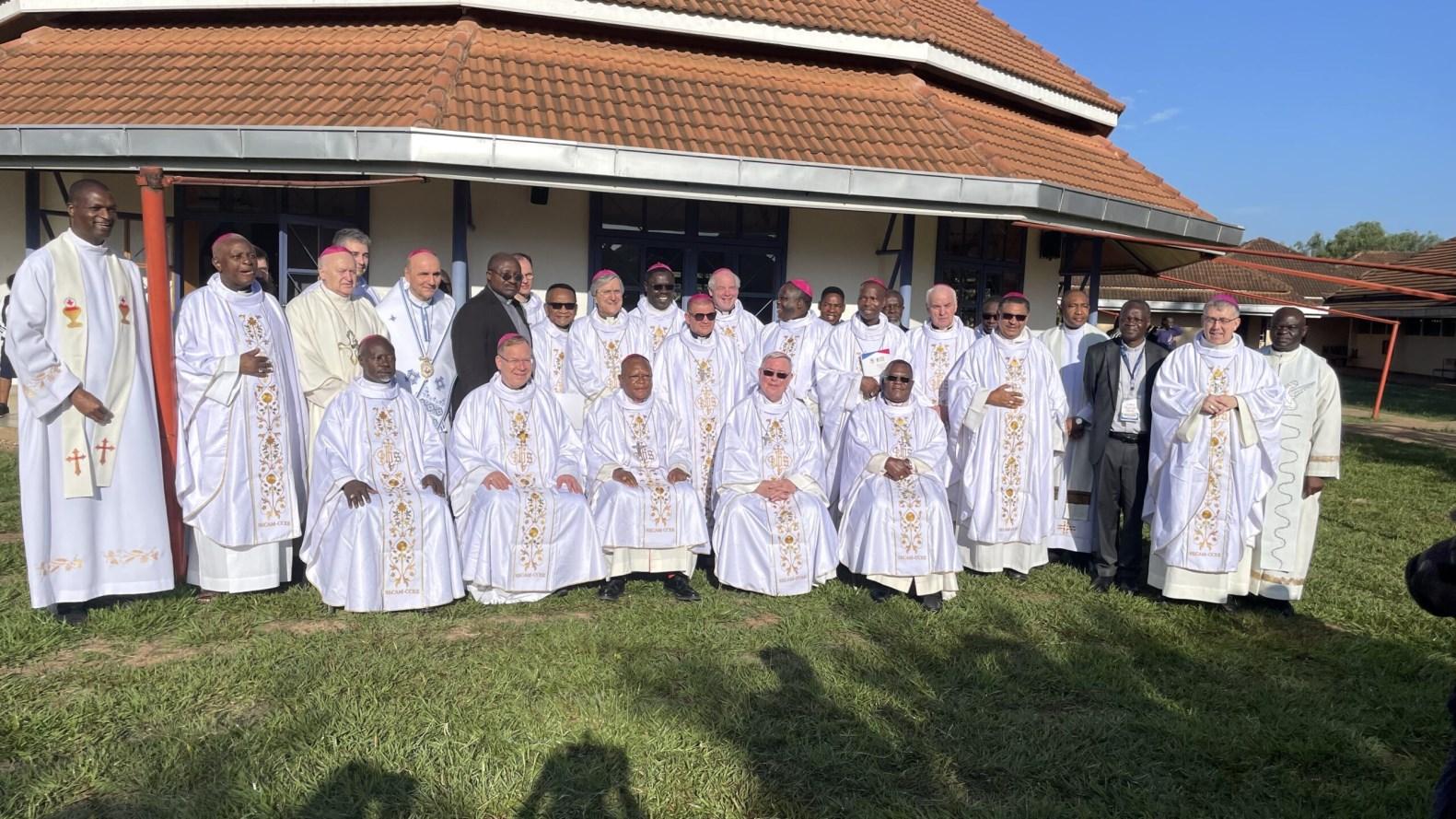
We acknowledge the profound significance of the transformation of the Roman Curia and the entire Church as outlined in the Apostolic Constitution “Praedicate Evangelium”. This transformative reform, guided by Pope Francis, seeks to align the Church with the challenges of the 21st century. This instrument of the Holy Fathers’ apostolate emphasizes a missionary conversion, fostering an ecclesiology of communion, and notably, incorporates the participation of the lay people, especially women, in Church governance. This reform advocates for decentralization, enhanced collaboration with bishops, and addresses the diverse cultural and pastoral needs, especially pertinent to Africa. This paradigm shift marks a new era for the Curia, focusing on service and embodying the vision of a synodal Church, rooted in communion, participation, andmission.
Reflecting on the first session of the Synod in Rome, we embrace both European and African perspectives: Europe’s diverse ecclesial identity fosters a deep listening and discerning church journey, highlighting transparency and dialogue while Africa’s specific cultural and societal aspects emphasize communal values and inclusivity.
As we eagerly anticipate the second session of the Synod, we affirm our commitment to deepening our relationship and to implementing concrete actions that reflect our unity in Christ. We propose a healthy, missionary, and pastoral exchange between the conferences of
Europe and Africa. We aim to integrate African values such as communitymindedness and family into parish life, and advocate for a healthy priest exchange program between our continents. Our collaboration will extend to formation and communitarian discernment, conducted in a spirit of humility and mutual respect between our churches. In this shared journey of faith, we recognize ourselves as learners, with both clergy and laity walking together in proclaiming Christ to the world.
In our collective journey, we endeavor to be particularly attentive to the voices and contributions of our young people in a world increased digitalization. Recognizing their unique perspectives and energy, we affirm the need for their active involvement in the life and mission of the Church. By listening attentively to their experiences and insights, whilst guiding them in the faith, we commit to a deeper understandingand response to their needs. As we stand at a pivotal moment in our world, we, the bishops of Africa and Europe, unite in the call to cultivate a culture of fraternity. In this spirit, we endeavor to create a more harmonious and prosperous future. Together, we commit to this journey, building bridges that not only connect our continents, but which also nurture the growth and flourishing of our diverse communities in faith andlove.
May God bless our joint efforts as we walk together in synodality, uniting Africa and Europe in faith, hope,and love.
Issued in Nairobi, January 25, 2024.
H.EM. Fridolin Cardinal Ambongo H.E. Msgr. Gintaras Grušas President of SECAM President of CCEEMore than 300 people, the majority of whom are of Christian religion, were killed between December 23 and 26 in Plateau State in Nigeria, by Fulani militants during an attack on Christian communities in around thirty villages in the middle ofChristmas.
Four weeks after the massacre of more than 300 people by extremists who also burned entire villages and destroyed food stocks during coordinated attacks in Plateau State in Nigeria, none of the perpetrators of these crimes have been to answer for his actions.
These deadly attacks were directed “specifically against Christians,” Father Andrew Dewan, director of communications for the diocese of Pankshin, confirms to the organization called Aid to the Church in Need (ACN). “I live in this same community and can confirm that the areas where the casualties occurred are 100% Christian, with the exception of a few. »
The assaults began in a rural community called Mushu on the night of December 23, 2023. Around 18 people were killed and several injured. Shortly after, the village of Tudun Mazat was attacked. The attackers stormed the community in the afternoon. Before the people could raise the alarm, the bandits started shooting people, houses and storedcorn were set on fire, churches and clinics were also set on fire.
“I had gone to Christmas mass in the Catholic community that morning. From Tudun Mazat, Fulani terrorists descended on Maiyanga, killing 13 people. About 20 other communities were attacked that night,” says Father Andrew.
Everything suggests that militants of the “Fulani” ethnic group, in this case Muslim shepherds, are the authors of this massacre of Christians. “In communities where Christians live side by side with the Fulani, no Fulani people were hit, and no Fulani houses were burned, and surviving witnesses have no doubt that the attackers were Fulani,” declared the priest.
Targeted attacks against Christians Muslim Fulani herders originate from the Sahel region, which was once habitable and had pastures for herders, but is now a desert; which caused them to move south in search of greener pastures. It is in this part of the “central belt” of Nigeria that these attacks by Fulani herdsmen take place, they seek land and thus expel the inhabitants who are Christians. “It’s a turf war,” summarizes the father.
For the spokesperson for the Pankshin diocese, this latest attack shows that it is also a religious conflict. “The fact that this happened at Christmas and the deliberate targeting of Christians in a mixed community, where Muslims are not attacked, clearly bears all the hallmarks of a religious conflict. The goal was to inflict maximum suffering and destruction on Christians. »
Father André denounced the passivity of the security forces to avoid the tragedy while for days there have been rumors according to which the “Fulani” were planning to attack these villages. “This should have put security on red alert, but as always, they were caught off guard. We are reaching the point where, if something drastic is not put in place to deal with this coming storm, the temptation for people to take the law into their own hands is verystrong. »
ACN appeal to the Nigerian government
The Executive President of ACN International, Regina Lynch, deplores this new episode of violence against Christians in Nigeria: “This year began with the brutal assassination of Father Isaac Achi on January 15 and now ends with the senseless murder of a large number of Christians. Many more lost their lives to violence during the year. We call on the government to tackle this problem once and for all and ensure the safety of its citizens, and we urge our friends and well-wishers to continue to pray for Nigeria, just as we pledge to continue helpingineverypossible ways,” he said.
SECAM with Raquel Martinez
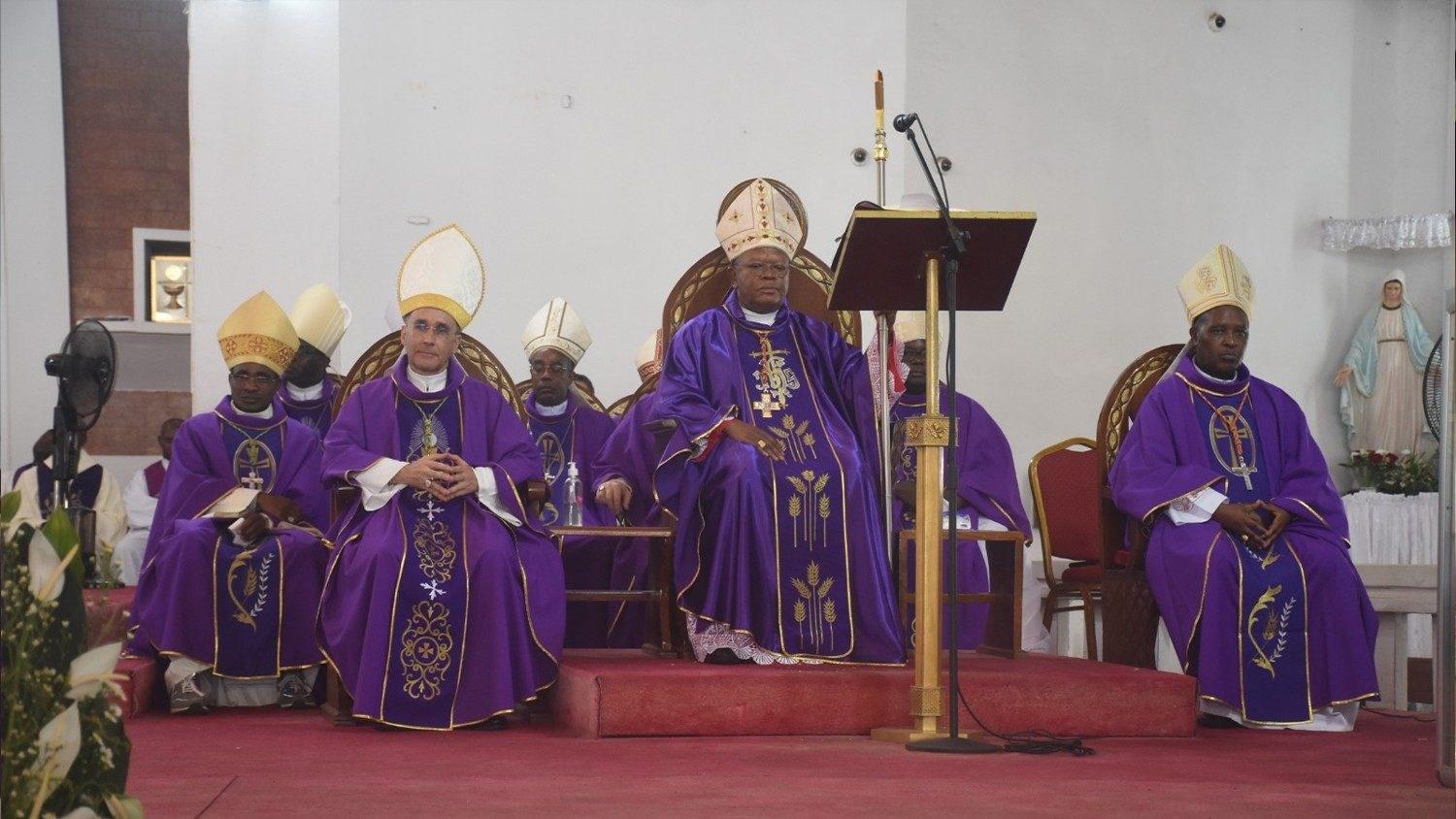
This is a first in West Africa: a congress on Catholic education was held from December 7 to 10 in Abidjan, Ivory Coast. Several archbishops and bishops from different countries in Africa and around the world, as well as many education stakeholders in Africa, participatedinthisinnovativemeeting.
For4 days,discussionstookplace onthe feasibility of putting into practice the African Educational Pact, presented to Pope Francis on June 1, 2023. This document was the fruit of work undertaken by the International Foundation “Religions and Societies”, co-chaired by Mgr Philippe Rukamba, bishop of Butare in Rwanda, and Dom Bernard Lorent, abbot of Maredsous in Belgium. The objective is to renew and strengthen the qualityof the contribution of the Catholic Church in the field of educationonthecontinent.
The Holy Father then welcomed this initiative, hoping that the African educational pact could become a more concrete reality and adapted to local African cultures, without however giving in to the temptation of withdrawinginto oneself. “Brothers, you are the pastors of the youngest continent in the world: your greatest wealth is them, the young people. May you invest yourbest energies in theireducation,” he
told the African delegation that came to theVaticanlastJune.
The subjects addressed during this first congress attempted to respond to this request: putting the human person at the center in education, developing the spirit of community and solidarity, remaining attentive to youth, promoting education in service to all. Mgr Philippe Rukamba explained during the congress that “each Catholic school will try to propose an educational project in its own conditions, because not all countries are thesame”.
In a message addressed on December 7 to the presidents of the “Religions and Societies” Foundation and signed by Cardinal Secretary of State Pietro Parolin, the Pope hoped that those involved in Catholic education would continue to work to offer young people “a renewed training, more open and more inclusive, creating among young people a beautiful harmony between thoughtandaction.”
The Holy Father hopes that Catholic education in Africa can be “a sign of hope and a solid basis for the peaceful coexistencethatAfricaneedstoday.”
Anne van Merris (Zenit.org)Salesian priest Léopold Feyen, aged 82, was assassinated on Tuesday December 12 in the town of Masina, in the Kinshasa region, capital of the Democratic Republic of Congo. The priest was found dead in his room in the SainteMarie-Auxiliatrice parish.

Léopold Feyen was born in Hechtel, Belgium, on August 19, 1941. In 1961 he made his first profession as a Salesian of Don Bosco and, in August 1967, took his perpetual vows. He was ordained a priest on September 13, 1969.
During his nearly forty years of mission in the DR Congo, he also devoted himself to the work of the “City of Youth” in Lubumbashi, one of the best technical schools in Katanga, which offers carpentry courses, of automobile mechanics, construction, welding, mechanics and agriculture, and which includes a boarding school for sixty young people.
His death deeply saddened the local community. Father Feyen, known to everyone as “Koko was old and in poor health. Although he no longer held leadership positions within the local community, he continued to oversee the management of gardens grown to produce fruits and vegetables for schools.
During all these years of work, he dedicated his life to young people, especially the most deprived, with the heart of a good shepherd, becoming for them, like Don Bosco, “Father, Master and Friend”.
The Salesian Visitation “Afrique Congo Congo” (ACC) expressed its pain through a press release, in which it invites prayer for Fr. Léopold Feyen and his family, and in which it asks the Salesians to remember his memory, in accordance with article 54 of the Salesian Constitutions and article 76 of their Regulations.
Zenit.org
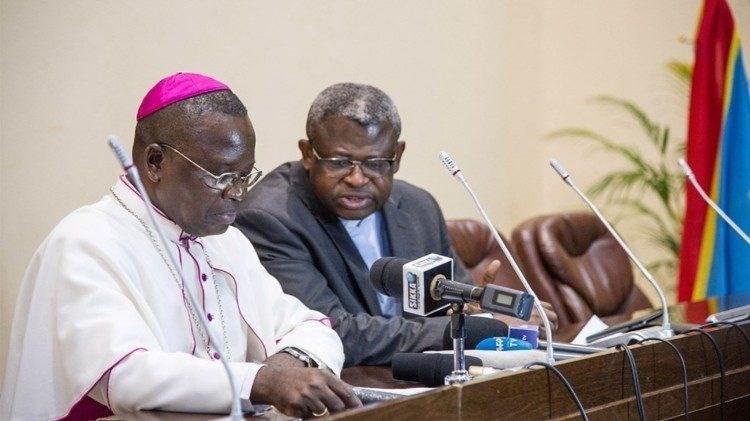
The December 20 vote was “chaos”, characterized by fraud, corruption, vandalism, incitement to violence, conscience-shopping, and attacks on human rights. This is the observation made by the National Episcopal Conference of Congo (Cenco) of the recent electoral process in the DRC, in its message published Thursday, December 21.
After the general elections of December 20, 2023 and two days before the inauguration of re-elected President Felix Tshisekedi scheduled for January 20, the National Episcopal Conference
of Congo (Cenco) delivered its assessment of this electoral process. In their message published on January 18, the bishops, who also formulated “useful recommendations for the future of the country”, say they followed with sadness the progress of the electoral operations, at two levels. Directly, from their dioceses which cover the entire territory of the Democratic Republic of Congo (DRC) and indirectly from the joint Electoral Observation Mission of the National Episcopal Conference of Congo and the Church of Christ in Congo(MOECENCO-ECC).
According to the prelates, more or less 40% of the Congolese enlisted mobilized to vote, and even beyond the legal day, because they believed in a new departure from their country. But thesepeople aretoday “disillusionedand traumatized” by the way this process was organized and by the conditions in which it took place in many places. This denotes “a lack of consideration towards him” and “we cannot silence what we
have seen and heard,” say the Congolese bishops.
The Cenco notes that the irregularities and incidents denounced make “the elections of December 20 an electoral catastrophe”, because of their scale and extent. Based on its observation and that of other Observation Missions, it concludes that “these elections were characterized, in general, by fraud, large -scale corruption, vandalism of electoral materials, incitement to violence, illegal detention of DEVs (Electronic Voting Devices), buying conscience, intolerance, immodesty, attack on human rights, human life and the dignity of people, going up to publicly humiliate the woman. For the bishops, the chaos recorded during this fourth edition of the elections in the DRC follows the obstinacy of the Independent National Electoral Commission (CENI) to organize this election by defiance, while it was aware of certain "constraints". Because of this, the commission was led to violate the national legal framework and the electoral administration, writes Cenco.
After the publication of the preliminary reportoftheir MOE CENCO-ECCatthe beginning of January, the prelates say they have discovered “an impressive number of parallel votes with voting machines found in private homes”. Whichleadsthemtowonderiftherewas not such prior planning “at the level of the organizing power”. Cenco is also surprised by the ease with which electronic voting devices (DEV) –voting machines – and rolls of ballot papers found their way into the hands of individuals. Thus, she writes, “the CENI should question its role in this imbroglio, because it is it which has exclusive control of allthe machines and it has never complained of any theft of itsequipment".
After refusing the proposal to set up a mixed and independent commission for
investigations, regrets the CENCO, the CENI positioned itself as judge and party by invalidating 82 candidates, while announcing subsequent cases of invalidation. This opacity seems a logical continuation of other cases previously observed, declares the organ of the Catholic Church, which cites cases of enrollment kits found in private homes, fictitious registration centers, refusal of an audit independent of the electoral register, etc. In all these situations, notes the message, the CENI has neither provided explanations, nor clarified things, nor accepted a consultation framework. Added to these irregularities are those in the publication ofthemaps ofthePollingStations(BV). After analysis, indicates the Cenco, “the CENCO-ECC MOE was able to detect anomalies, including the existence of 3,706 BVs duplicated 2 or even 3 times, with the consequence of increasing the number of voters of the order of 2 400,000”. The definitive publication of the BV map in a non-downloadable format does not determine their precision and suggests planned opacity, believethebishops.
After refusing the proposal to set up a mixed and independent commission for investigations, regrets the CENCO, the CENI positioned itself as judge and party by invalidating 82 candidates, while announcing subsequent cases of invalidation. This opacity seems a logical continuation of other cases previously observed, declares the organ of the Catholic Church, which cites cases of enrollment kits found in private homes, fictitious registration centers, refusal of an audit independent of the electoral register, etc. In all these situations, notes the message, the CENI has neither provided explanations, nor clarified things, nor accepted a consultation framework. Added to these irregularities are those in the publication ofthemaps ofthePollingStations(BV). After analysis, indicates the Cenco, “the CENCO-ECC MOE was able to detect anomalies, including the existence of 3,706 BVs duplicated 2 or even 3 times, with the consequence of increasing the number of voters of the order of 2
400,000”. The definitive publication of the BV map in a non-downloadable format does not determine their precision and suggests planned opacity, believethebishops.
These numerous irregularities, incidents and reported fraud “seriously affected the elections and undermined voter confidence. Therefore, the question arises of the perception that the Congolese people will have of the next Parliament. Considering the provisional results of the national legislative elections, only 6% of deputies come from the opposition, which makes the Cenco fear “a great risk of returning to a single-party system, which would be a major setback for our emerging democracy”.
Faced with these challenges which “endanger” “our country”, in particular because of the contempt for moral values, the Congolese bishops call on the competent authorities whose mission is to ensure stability, justice and national cohesion, to use wisdom and conscious
intelligence to restore the tarnished image. They call on the President of the Republic to be the guarantor of national unity and territorial integrity. They reaffirm their availability to provide him with the necessary assistance for the success of this “second and final mandate in the interest of the Congolese people”. They recommend that the government “take necessary and urgent measures to discourage xenophobia and the surges of tribalism noted in speeches throughoutthe electoral campaignandto put in place a political mechanism to strengthen national cohesion”. The prelates also request the organization of elections in the territories where they have not taken place: Rutshuru, Masisi andKwamouth.
They propose a reform of the CENI and the clarification of the independence of this commission in relation to national laws to guarantee good governance. Theyalso ask the government to identify and prosecute those involved in the misuseofelectronicvotingdevices.
Stanislas Kambashi (vaticannews)
The bishops of the Central African Republic (CAR) sent a message to their fellow citizens on Sunday, January 14. “This time of grace allowed us to evaluate the activities of the different sections of the episcopal councils, to define the orientations and initiatives to undertake to make them effective,” declared the Central African Episcopal Conference (CECA) at the end of its ordinary assembly from January 8 to 15 inBangui.
At the end of their ordinary plenary assembly held from January 8 to 15, 2024, the bishops of the Central African Republic sent a message to the people of God at the Notre-Dame de l'Immaculée Conception cathedral in Bangui. During
this session, the Central African Episcopal Conference chose to deepen the theme of mission in the wake of the Synod on synodality, “thus evaluating the activities of the different sections of the pastoral councils and defining the orientations as well as the initiatives to be undertaken to make them more effective.
Covering, moreover, the synodal experience lived at the parish, diocesan, national levels and, veryrecently, during the first session of the 16th Ordinary General Assembly of the Synod of Bishops held in Rome from October 4 to 28, 2023, the CECA has underlined that thisspiritualitinerarymadeitpossibleto “highlight the assets and values to be
consolidated, namely the liberalization ofspeech, mutual listening, theinclusion of the marginalized, discernment and respect for the sense of faith of the faithful”.
Promote co-responsibility in the mission
Flowing from the mystery of the Holy Trinity, explained the bishops of the CAR, “the Church has no purpose other than that of announcing the Good News in the world”, specifying that “the mission is the profound nature of the Church, and synodality is the path.” The Second Vatican Council, with its understanding of the Church as Mystery, people of God, Communion and Temple of the Holy Spirit, they continued, "instilled a new dynamic of being in Church which fundamentally breaks with the understanding anterior pyramidal.
However, deplored the CECA duringthe broad consultations of the people of God on synodality, "many Christians have denounced the lack of co-responsibility between clerics and laity in the mode of organization, functioning and government of the Church and of the proclamation of the Gospel. Recognizing that emerging from the sterile rivalry between clergy and laity represents today an urgent challenge within the Central African church, the bishops indicated that “this exit requires the conversion of mentalities, minds and hearts. , a better articulation of the common and ministerial priesthood, a redefinition of the meaning of authority andco-responsibilityinthemission.
In this year of the mission, the Central African bishops suggested, synodality thus appears as “a call from the Lord to walk together, priests and lay faithful, assuming the common responsibility of serving the community, each according totheirownvocation”.
Welcoming the commitment of the laity to the dynamic of self-care and their involvement in the rehabilitation,
expansion and construction of churches and chapels, the CECA also invited them to rediscover the meaning of authority as a service to the image of Christ the Servant. “An authority which serves itself necessarily opens to the discernment of charisms, gifts and ministries in the Church. The diversity of donations, services and activities, far from being a source of conflict or rivalry, are in realityat the service of the mission,” explained the Central African EpiscopalConference.
To this end, in the dynamics of the march towards the second General Assembly of the Synod, scheduled for October 2024, the Central African bishops encouraged the basic ecclesial communities, the parish communities and the various diocesan authorities to “rethink the parish structures, the modes of government and decisions of our particular Church in such a way that reflections lead to concrete proposals promotingthecharismsandministriesof eachperson.
Expressing its closeness to all Christians persecuted because of their moral integrity and through fidelity to their faith, this episcopal conference invited the faithful to denounce the evils of their society and to resolutely commit to finding solutions. They urged Central African Christians to have compassion. “Being compassionate is not just about showing empathy, giving advice or providingassistance.Truecompassionis born from a heart that listens to the cries of others and allows itself to be softened by their distress. To empathize with others is to let oneself be touched by their suffering and to share it,” they explained.
The Episcopal Conference also encouraged the actions of the government, humanitarian actors and MINUSCA who, sometimes at the risk of their lives, continue to provide aid to people weakened by insecurity or natural disasters.
The bishops of Cameroon held their 47th annual seminar from January 6 to 13, in Maroua, in the Far North, in the presence of the Apostolic Nuncio to Cameroon and Equatorial Guinea, Mgr José Avelino Bettencourt. The work which focused on the theme “A synodal Church on mission”, with the figure of the Venerable Baba Simon as an anchor, resulted in calls to intensify efforts for peace,unityandfidelitytotheGospel.
The 47th annual seminar of the bishops of Cameroon saw an extraordinary mobilization, with the participation of all the active forces of the Far North region of Cameroon. Catholics, Muslims and animists joined the bishops of Cameroon to ensure the smooth running of the work and raise prayers together forpeace.
Walking together in the spirit of synodality
During the work of this 47th seminar, the bishops reflected on the “Synodal Church in mission”. In his intervention, the President of the National Episcopal Conference of Cameroon, Mgr Andrew Nkea, returned to the burning news linked to the Fiducia Supplicans declaration,adocumentrelatingtotheblessings of irregular couples. Speaking about the blessing of homosexual couples in connection with this document, the Archbishop of Bamenda declared that: “We, the bishops of Cameroon, have said that the familyis a divine institution starting from a man and a woman who are united by the sacred bonds of marriage open to procreation; These are thevaluesspecifictoour society.”
In agreement with the position of the Church of Cameroon, “we said in our declaration that we must walk together towards the kingdom of God”. This, he assured, is “synodality”. The Church in Cameroon expects a lot from its pastors, in these times strongly marked by the advent of darkness which desperately seeks to sow trouble in the fold, he
explained.
In their message, the prelates also asked to pray for peace in the North West and South West regions, plagued by violence. Mgr Andrew Nkea asked the administrative, civil and military authorities to strengthen concerted concrete actions for the definitive eradication of human rights violations which occur daily in disregard of the sacred character of human life. Particularly in the region of Maroua, in the Far North of Cameroon, a meeting place of peoples, religions and cultures, and where serenity and agitation confront each other because of the abuses of the Islamist sect Boko Haram. Mgr Bruno Ateba Edo, bishop of the diocese of Maroua-Mokolo confirmed this need for peace in this part of Cameroon, and in the regions of North-West and SouthWest Cameroon. He called on men and women of good will to come to the aid of victims of various types of violence. He also invited the faithful to be “apostles of peace, love, unity, joy and reconciliation in our dear and beautiful countryCameroon”.
The apostolic nuncio congratulates the bishops
Present at this meeting, the apostolic nuncio to Cameroon and Equatorial Guinea, Mgr José Avelino Bettencourt, noted that “the bishops of Cameroon work with zeal for peace in this country, human dignity, and to be at the service of all Cameroonian. The Vatican representative mentioned the tenth anniversary of the signing of the agreement between the State of Cameroon and the Holy See, "a concrete sign of the service that we want to offer to Cameroon", ensuring that Pope Francis is united at this episcopal conferenceofCameroon.
SECAM
Secretariat
No 4 Senchi
Street, Airport Residential Area, Accra
P.O. Box KA 9156, Accra Ghana
Tel: 0302778868/73 www.secam.org
Baba Simon, a figure who must inspire
Continuing, Mgr Bettencourt, building on the call of Matthieu whose Jewish name was Lévy, Mgr José Avelino Bettencourt recalled that the word of God is powerful and liberating even in a conflictual society. The Nuncio invited the faithful to examine the person of Matthew before his conversion (a notorious public sinner, profiteer, enemy of his own people, swindler,self-centered, selfish).Atthe call of Jesus, he abandons everything to follow him radically. He therefore invited us to “contemplate the power of the word of the Lord which is liberating”.
Commenting on the figure of Baba Simon, the apostolic nuncio noted how his life is an inspiration for many people in Cameroon and beyond.
“Baba Simon heard the Lord’s call to follow Him. Baba Simon knew when to sit and when to talk; how to walk and listen. And many may wonder what pushed Baba Simon to leave his land to come to this place, leaving the
comfort that was his. Baba Simon was attentive to God’s calls and he listenedtohim,” hesaid.
Furthermore, at the end of the work the bishops, in their final press release, expressed their satisfaction with the pilgrimage carried out on the Baba-Simon hill in the locality of Tokombéré where more than four thousand people gathered around the bishops for the path of cross, the Eucharistic celebration and a stop at the traditional leader of the Mada whose Father was the first to welcome Baba Simon. This pilgrimage that we made in the footsteps of Baba Simon, they assured, “made us understand, to use Baba Simon’sownwords,thatweare on the same track. We have in fact understood that the announcement of the Good News is the responsibility of everyone.” The pastors urged the faithful to intensify prayer for “the cause of beatification of Baba Simon”.
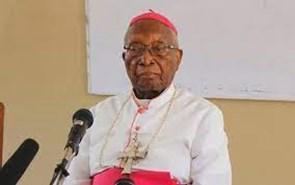
The Archbishop Emeritus of Lomé, Philippe Fanoko Kossi Kpodzro, died
on January 4, 2024 in Sweden. He was93 yearsold.
Since his retirement in 2007, Bishop Kpodzro has been committed to freedomanddemocratic changeinTogo.
Born in March 1930 in Tomégbé in the Catholic diocese of Atakpamé in Togo, he was ordained priest in December1959inRome.